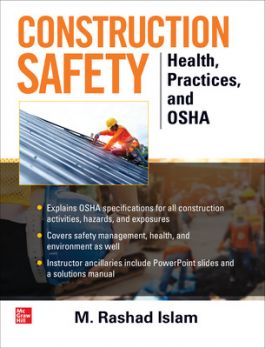A Confined Space blog post
More on OSHA nominee Scott Mugno
Posted with permission from Confined Space, a newsletter of workplace safety and labor issues.
Reviews continue to pour in about President Trumps long delayed nomination of Scott Mugno to be the next Assistant Secretary of Labor for OSHA. In addition to my original post, we have already checked in with Katie Tracy at the Center for Progressive Reform and on the business side, Eric Conn of the law firm Conn Maciel Carey.
Senator Patty Murray (D-WA), ranking member of the Senate Health, Education, Labor, and Pensions (HELP) Committee, which will consider Mugno’s nomination, issued a rather cautious statement:
Given President Trump’s unrelenting commitment to undermining worker protections and making it easier for corporations to take advantage of workers, it is critical that OSHA remains committed to enforcing health and safety standards—and punishing corporations who put their employees’ lives at risk. Mr. Mugno has spent his career working for big business, so I look forward to hearing how he plans up to stand up for workers and continue OSHA’s active role in deterring corporations from endangering workers’ health and safety.
National COSH co-executive director Marcy Goldstein-Gelb calls for a “rigorous and thorough” Senate review of Mugno “because so much is at stake for American workers and families. The work of OSHA is about people. It’s about workers’ lives and limbs. It’s about reducing risks and hazards so everyone can go home safely at the end of his or her shift.”
The COSH umbrella has called for the Senate to focus on three issues:
- Mugno’s views on strong enforcement of the Silica standard.
- How the health disaster caused by the 2001 collapse of the World Trade Centers can be avoided in Hurricane response, and
- Mugno’s plans for supporting OSHA’s workplace violence standard “to assist health care and social service workers and employers in making their workplaces safer?”
Finally, industry attorney Art Sapper at the lawfirm Ogletree Deakins, adds a bit of hostile meat to the industry bones. Asked about the Obama administrations “overaggressive enforcement program,” Sapper speculates that it will be hard to turn the large ship of OSHA toward more compliance assistance, and “moreover, less aggressive enforcement may not sit well with President Trump’s blue-collar supporters—which could cause political problems for the administration.” Sapper also predicts that Mugno may re-examine OSHA’s Severe Violator Program (SVEP) and its “unusually harsh features,” some of which he may revoke. SVEP is the second iteration of a program launched in the Bush administration after press stories of major companies who repeatedly injured and killed workers without any significant response from OSHA.
On the regulatory front, Sapper thinks that Mugno may try to rewrite or modify standards that are “ill-suited to the contemporary workplace or are poorly written,” and may go after the language in OSHA’s electronic recordkeeping standard that prohibits employers from retaliating against workers for reporting injuries and illnesses.
Finally, parroting the industry myth that last administration tried to “intimidate and punish employers by issuing severely adverse press releases,” Sapper notes sadly that even under the Trump administration, “the tone and number of adverse press releases diminished but OSHA has still not ceased this highly unfair practice.”
For the record, the Obama administration did not invent the press release. Every previous administration — Republican and Democrat — has issued “adverse” press releases. The Bush administration had been issuing an average of 13 press releases a month about enforcement cases, and the Obama administration averaged over 40. In the nine and a half months since inauguration day, Trump’s OSHA has issue a total of 22 press releases about enforcement cases, or about 2.5 per month.
And finally, there’s this: The daughters of a FedEx employee, Michael Merton, killed two weeks ago while working at the company’s facility at Lubbock Preston Smith Airport, have filed a wrongful death lawsuit against the company because no one has told them how their father was killed. Their attorney explained that they filed the lawsuit “in order to do the discovery that we need to find out exactly what happened and how it happened and why it happened.”
Mugno may want to get his employer to be a bit more transparent on this issue before his confirmation hearing.
Correction: The original version of this post stated that Sapper had speculated that Mugno might revoke the SVEP program. Actually, he wrote that Mugno might only revoke certain “unusually harsh features.” A correction has been made.
Click here to visit Confined Space.
Looking for a reprint of this article?
From high-res PDFs to custom plaques, order your copy today!






